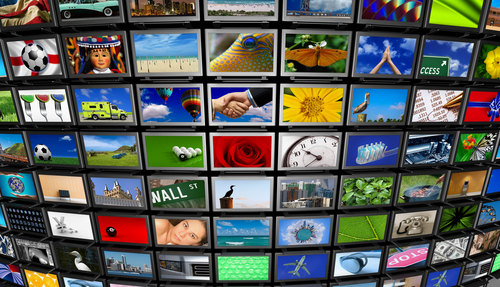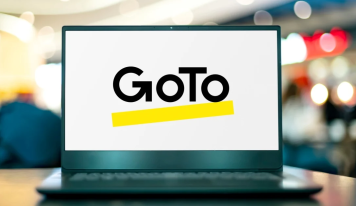
There has been lots of controversy over the merging of two of the largest cable companies Comcast and Time Warner Cable. Concerns range from fear of a monopoly to worse customer service to higher fees and data caps. Jim Edwards at Business Insider for example says you will get screwed if the merger goes through.
Consumers Union thinks if the merger happens, prices will increase and service will suffer. Peter Radizeski who I consider to be a foremost expert on telecom and M&A hates the deal saying it is terrible for consumers according to his blog on TMCnet. Specifically he says:
“The transaction will generate approximately $1.5 billion in operating efficiencies.” IN THEORY! The only operating efficiency will be the reduction in personnel. So even more layoffs in the telecom space. Awesome!
The FCC’s sole job is to protect the consumer. This is not a pro-consumer move.
We already have enough too-big-to-fail companies with massive debt and flat markets. Think about that: massive debt and flat markets.
“No one woke up this morning wishing their cable company was bigger or had more control over what they could watch or download,” said Craig Aaron, CEO of Free Press, a consumer advocacy group, in a statement. “Americans already hate dealing with the cable guy–and both these giant companies regularly rank among the worst of the worst in consumer surveys. But this deal would be the cable guy on steroids–pumped up, unstoppable and grasping for your wallet.”
Another TMCnet writer Tracey Schelmetic pens a piece titled Comcast Can Afford to Buy Time Warner But Not To Improve Its Awful Customer Service? Tracey by the way once got a letter from Warren Buffet with glowing compliments about her writings on customer service so I would take what she says seriously.
Tara Seals authors a somewhat neutral piece about the merger for TMCnet – here are the salient points of concern:
“If Comcast takes over Time Warner Cable, it would wield unprecedented gatekeeper power in several important markets,” noted Public Knowledge.
The combined company would also have outsized influence when it comes to negotiating network peering arrangements, especially in light of online video traffic, so it would affect the cost of carrying that traffic for others, certainly a competitive advantage.
“An enlarged Comcast would be the bully in the schoolyard, able to dictate terms to content creators, Internet companies, other communications networks that must interconnect with it, and distributors who must access its content,” Free Press added.
Then there’s the fact that Comcast already owns NBCUniversal—still a concern, some maintain, even if the regulatory controls in place after that mega-merger are extended to the TWC footprint.
“This merger will…give it control over more than half of the triple-play services that combine TV, phone and Internet service,” Free Press said. “Don’t forget, Comcast already owns NBC, MSNBC, Universal Studios and tons of cable channels. That means that for most of America, Comcast could control even more of what you see and how you see it.”
It said, “Putting this much power in the hands of one company is dangerous. This deal would lead to less consumer choice, less diversity and much higher cable bills.”
But with scale comes volume discounts, right? Well not necessarily—from Comcast’s point of view, the benefits of getting large seem to end at the consumer pricing mark. Comcast is “not promising that customer bills will go down or will increase less rapidly,” Cohen said. “Most of the factors that go into customer bills are factors out of our control.” But, it’s unlikely that pricing would go up.
Cable companies are fascinating because they are government sanctioned monopolies in their own areas so a merger of two companies doesn’t change much since they don’t really compete with each other. In other words there should be less concern than if two large oil companies like Exxon and Mobil wanted to merge as their gas stations compete on price on many street corners.
From a competitive standpoint both of these cable companies are seeing an onslaught from the phone and wireless competitors – in many cases from both at once. In fact, a wireless broadband router can easily replace a cable connection and with bonded LTE-A around the corner, the speeds of wireless will actually be faster than wired for many households.
If that wasn’t a big enough of a threat, Google Fiber is a solid alternative that will potentially put even more pressure on cable companies. Which would you want, broadband from your phone company or Google broadband with a Chromebook, Chromecast, enhanced Google cloud storage and an Android device thrown in?
Speaking of Chromecast, YouTube, Xbox, Netflix and Hulu are just some of the serious competitors to cable companies at the moment. I wager we all know people who have cut the TV cord at home and are getting all their video from OTT providers.
The reality is this merger gives these companies economies of scale to compete effectively and lower prices if needed.
The flipside to this argument comes from Doug Mohney who writes for TMCnet sister site TechZone360 that Verizon’s lowering of prices yesterday is a direct result of competition from T-Mobile. Moreover, this competition comes because AT&T was not allowed to acquire the company. Meaning, the more competition you have in the market, the lower the prices.
A few years back I argued against the T-Mobile acquisition on the basis that small telecom equipment and software companies would be shut out of working with smaller carriers would in-turn negatively impact choice in the market. I am still a believer in this idea and it holds true as a reason to block this merger.
So in the end I am neutral on the acquisition – I think it will be bad for equipment and software companies but it will allow the combined company to compete more effectively with satellite, phone and Google who I expect to become a major force in the market over the rest of the decade.
What do you think?





